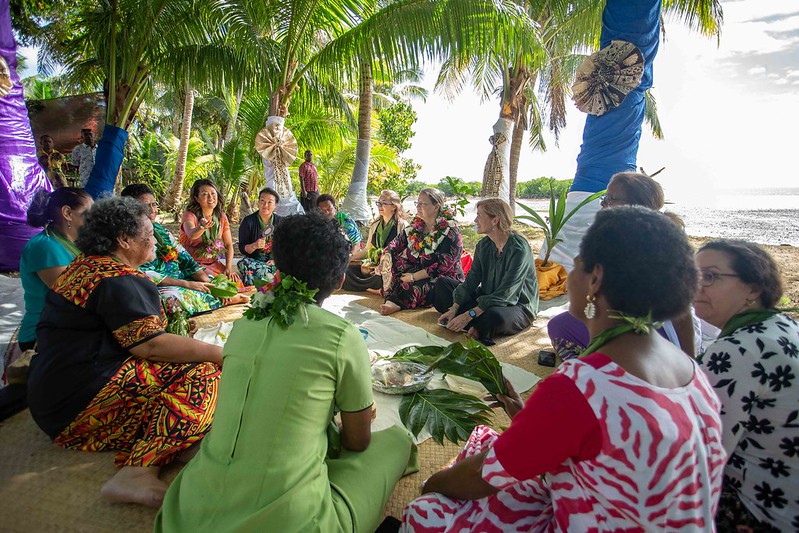Fiji Fisheries Contribute To Addressing Gender Inequality in Fiji
 It may be surprising that Fiji is using the fishing industry in order to deal with gender inequality, but it is proving extremely effective. Fiji is a prime example where a country has taken one of the Sustainable Development Goals (SDG), within this case SDG 5 – Gender Equality, and put it within the context of their island’s most important employment sector – fishing.
It may be surprising that Fiji is using the fishing industry in order to deal with gender inequality, but it is proving extremely effective. Fiji is a prime example where a country has taken one of the Sustainable Development Goals (SDG), within this case SDG 5 – Gender Equality, and put it within the context of their island’s most important employment sector – fishing.
Poverty in Fiji
According to the Asian Development Bank (ADB), in 2019, around 24.1% of the population in Fiji was living below the poverty line and this greatly impacts women and highlights the importance of promoting gender equality within the fishing sector, not only to further gender equality in Fiji but to reduce the number of people living in poverty. According to the World Bank, in 2016, women spent 15.2% of their time doing unpaid work, compared to 5.2% for men, showing a clear employment disparity.
The Issue
Women play a key part in Fiji’s fishing industry, yet still face disadvantages in comparison to their male counterparts. Already women play a large part in small-scale fisheries within Fiji, but many often regard their work as an extension of their housework due to their involvement predominantly being post-harvest as well as being within the clerical realm. This continues their financial reliance on men due to these jobs being low paying, even sometimes non-paying, and suppresses women from taking roles in the management and decision-making area of fisheries.
According to the World Bank, in Fiji, women spend almost three times as much time on unpaid domestic and care work than men, showing the disproportionate impact on women and the barriers and challenges women face to escape poverty. This is where Women in Fisheries Network-Fiji steps in.
Women in Fisheries Network – Fiji (WiFN-Fiji)
Women in Fisheries Network-Fiji (WiFN- Fiji) was founded in 1993 and aims to inform women about all aspects of sustainable fisheries. To educate women on the gender inequality within the fishing sector, to educate women on the importance of financial independence, as well as to encourage women to participate in the decision-making and management side of the fisheries. Its dominant aim is to enable women to have the knowledge and tools to take part in and promote female employment within the fishing industry.
WiFN-Fiji has run two workshops in recent years that focused on gender inequality in local regions, emphasizing the importance of recognizing this inequality within Fijian society and educating participants on this inequality. It has also worked collaboratively with Westpac Bank to create programs that help women deal with their finances independently of men.
WiFN-Fiji receives funding from governments, NGOs as well as charities, all to further their cause. By providing training and education at a local level, WiFN-Fiji aims to improve women’s opportunities and more than 80% of participants in these workshops in Tailevu and Ba rated them as effective, showing the impact these workshops are having.
The WiFN-Fiji demonstrates how the fishing industry in Fiji can reduce gender inequality, lead to societal re-education and change and enable women to escape poverty.
– Cordelia Moore
Photo: Flickr
